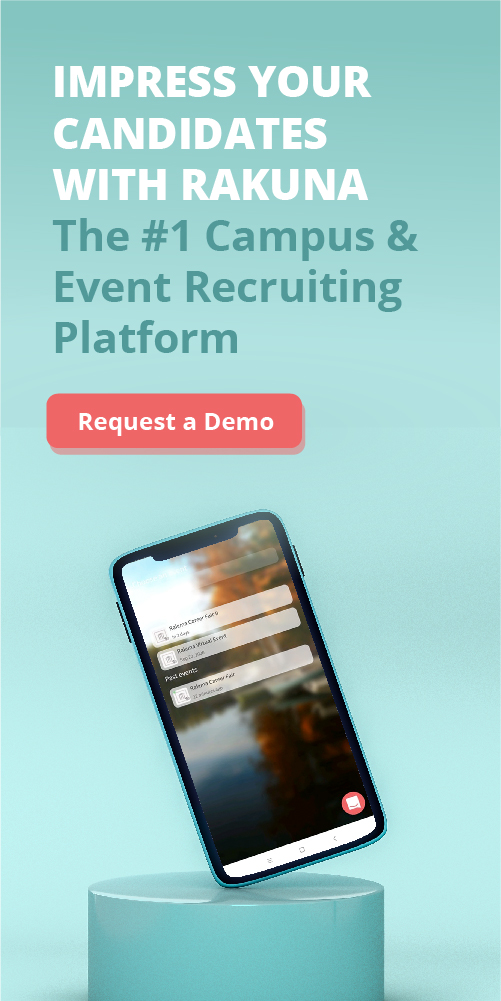A survey performed by Pride at Work Canada – in a survey pool of over 225 Canadian job-seekers, 41% of them were concerned if an organization was LGBTQ2+ friendly and conducted extensive research on that organization.
If you are one of the thousands of companies owning or planning to adopt a recruitment ATS, let us explore how this versatile tool can help you reinforce your diversity recruiting strategy!
Consequences of neglecting diversity and inclusion (D&I)
When asked, most HR managers can tell you why D&I is so essential and the various benefits it brings to an organization. But have you ever considered the drawbacks and consequences of neglecting D&I elements when recruiting?

Neglecting D&I elements denies you of talented candidates
According to a LinkedIn article, businesses that discuss topics related to D&I on LinkedIn received 26% more female applications than those that post fewer. In another research performed by Quantum workforce, they witnessed a 20% rise in team innovation and performance in teams with high diversity in employees’ backgrounds. What they have achieved is called “Cognitive Diversity” – where their employees bring diversity in thoughts, viewpoints, and personality to the team
Diversity recruiting strategy and D&I programs and elements are no longer “a nice thing to have” for businesses in the modern recruiting landscape. Organizations that fail to include D&I elements in their recruiting campaign run into the risk of deterring talented candidates from all walks of life.
Not sure what D&I means? Take a look at this article to perfect your D&I strategy
Class action lawsuit nightmare
Most developed countries employ a form of “Equal Employment Opportunity” law. For example, in the US, the Equal Employment Opportunity Commission (EEOC) enforces some of the following federal laws relating to D&I aspects:
- Title VII of the Civil Rights Act of 1964 (Title VII) makes it illegal to discriminate against a person based on race, color, religion, sex (including pregnancy, sexual orientation, gender identity), or national origin.
- The Pregnancy Discrimination Act amended Title VII to make it illegal to discriminate against a woman because of pregnancy, childbirth, or any medical reasons related to child delivery.
- The Equal Pay Act of 1963 makes it illegal to pay different wages to men and women if they perform the same work in the same workplace.
- Title I of the Americans with Disabilities Act of 1990 (ADA) prohibits discrimination against individuals with a disability in private companies and state and local governments.
If you are hiring in Canada, The Employment Equity Act covers the same grounds.
If push comes to shove, neglecting D&I elements in your recruiting program can invite expensive lawsuits. Take Students for Fair Admissions as an example – a nonprofit membership organization sued Harvard University on November 17, 2014, claiming that the university displayed discriminative actions against Asian-American candidates in its undergraduate admissions process.
The case has yet to conclude in 2021, with the two sides continuing to submit appeals to the Supreme Court. However, no matter who comes out as the winner, the case is a cautious example for companies lacking in the D&I department.
How an Applicant Tracking System Can Support Diversity Recruiting Strategy
Now that we know why D&I is important, how can TA leaders improve/integrate the relevant strategy through a recruitment ATS?

An ATS Extracts and Monitors Diversity Statistics
You can start your recruiting program by reviewing D&I data from previous campaigns to identify the hiring needs. Do you know that in a recent 2021 Talent Board D&I survey, it was discovered that:
Out of 350+ TA and HR professionals, 20% reported that their company is not actively tracking any diversity metrics.
Decisions informed and guided by data will improve the probability of success. An ATS can be an extensive repository of candidates’ data collected throughout your campaign pipeline. For this reason, most ATS can sort, compile, and display campaign data into valuable insights, including diversity statistics.
An ATS solution can benefit companies that have to fill out the EEO-1 form. The form is a demographic breakdown of your workforce, including race, sex, and age, to ensure equal employment opportunity. An ATS solution comes in as a monitoring tool to help a business remain compliant with the criteria established in the form.
An ATS Streamlines Content Creation Process
You have to ensure your diversity recruiting strategy is presented from the beginning of the recruiting process to attract a diverse pool of candidates. You can wait until the interview to showcase the details of your company’s D&I culture in person, but let ATS demonstrate the idea throughout the content and touchpoints even before that and does so automatically.
Don’t wait till the interview to showcase your organization’s commitment to D&I. With a recruitment ATS, make D&I part of your employer brand and showcase the missions in various aspects of a career site as well as the recruiting process.
Coming back to the data from Pride at Work Canada. People will do extensive research long before they submit their resumes. So let your candidates know your early effort for a proper D&I workplace!
Most recruitment ATS allows users to create a career site to attract and recruit job-seekers.
However, Rakuna takes this concept and pushes it to 11. With Rakuna, building a career site is both simple and fun.
- Users can create fully customized career sites using the Rakuna ATS solution without any programming skills. Simply drag and drop your desired content to form your site. Think of it like playing Lego.
- Recruiters now have the chance to show job-seekers the business’s D&I effort. You can dedicate a whole section of your site to “diversity” content. Insert a video, testimony, or simply pictures of your diverse crew. The possibility is limitless.
An ATS Gives Disabled Candidates More Options to Communicate
D&I can also present in the way of communication – allowing candidates to choose the communication methods and channels that are most suitable and accessible for them – whether it’s a phone call, text messaging, emails, in-person, or virtually. In other words, give the candidate different options to demonstrate their skills and values by lowering the barrier or communication format.
If you want to diversify your candidate pool, giving candidates options to contact you is a good start. Aside from giving everyone flexibility in communication, candidates with a disability can choose to show or conceal their uniqueness or touch base without being held back by their disability.
An ATS Facilitates “Blind Hiring” and Centralized Candidate Scoring

As your ATS receives applications from your career page, candidates’ data poses another challenge for D&I elements.
Candidates’ resumes can be a prevalent source of recruiter bias. A 2020 article published on the Havard Business School site introduced readers to a shocking situation:
Minorities who scrub their resumes clean of information indicating their heritage or origin are more likely to get accepted.
With personal details playing such a significant role in causing recruiter bias, many ATS solutions, like the one provided by Rakuna, can temporarily hide candidates’ personal information, leaving only job-related info for recruiters to consider.
Unconscious biases, as the name suggests, are made unconsciously. This human error, therefore, occurred without the notice of a recruiter. It’s encouraged to have multiple recruiters or perspectives on the same prospects. ATS can make this achievable through the collaboration space within the system and the ability to put information, feedback, and discussion on the same thread and candidate profiles.
An ATS Reduces Recruiters’ Fatigue
Operating under a tight schedule or with a large talent pool can put any recruiters under a lot of strain. Subsequently, they might apply (consciously or unconsciously) shortcuts in the decision-making process that’s not necessarily data-driven and objective.
Thankfully, an applicant tracking system can lift some of these weights. Most ATS solutions can automate specific tasks: Sorting the candidates into groups or categories, keeping them tagged with associated job links, sending out automated email campaigns, scheduling interviews & meetings, keeping track of candidate history through various communication platforms…
Recruiters can leverage just a couple of features or all at once so that the team can focus on what matters: fostering authentic connections, getting information, and making non-biased decisions.

Take the case of TEDxToronto – a Canadian independent TED organization with an entire staff consisting of volunteers. TEDxToronto recently kickstarted an ambitious recruitment campaign with four rounds of hiring. A more detailed recruitment process combined with the lack of tools tailored for handling applications pushed the team to the limit.
The TED team responded to this challenge by adopting ATS software to support their recruiters. In her customer testimony, Kareen Sarhane – Head of Talent, highlighted the ability to provide centralized simplicity by their ATS as the key to creating a successful recruitment campaign.
With job applications from multiple sites all flowing to the ATS and optimized candidates’ information within reach of everyone on the team, TEDxToronto can focus on making strong bonds with suitable candidates!
Harnessing Language for Inclusive Hiring
Language is a powerful tool in attracting diverse talent. Applicant Tracking Systems (ATS) play a crucial role in this process by analyzing job descriptions and suggesting edits to eliminate gender-biased or exclusionary language. By ensuring that job postings are crafted in an inclusive manner, ATS platforms help broaden the reach and appeal of job opportunities to a diverse audience.
Moreover, ATS platforms assist in creating job postings that effectively attract top-tier candidates. By strategically using keywords and phrases, recruiters can optimize their job postings to ensure visibility to the most qualified candidates. This proactive approach not only enhances the quality of applicants but also promotes diversity and inclusion within the hiring process.
Automated Compliance Enhancements for Inclusive Hiring
Applicant Tracking Systems (ATS) are invaluable tools for organizations striving to meet diversity-related regulations and guidelines. By integrating compliance features such as Equal Employment Opportunity (EEO) reporting, ATS ensures that the recruitment process aligns with legal requirements.
ATS platforms facilitate the collection and confidential reporting of applicant demographic data, enabling organizations to monitor and address potential biases effectively. By automating these processes, companies can gather comprehensive data on the diversity of their applicant pool, empowering them to make informed decisions to foster a more inclusive workforce.
By leveraging automated compliance features, organizations can maintain a fair and inclusive hiring process while mitigating potential legal risks associated with discrimination.
To Conclude
ATS is a powerful tool that can help you improve your D&I strategy. We have covered:
- How you can make D&I into your employer branding effort and present the throughout process.
- How data can be gathered, sorted, and monitored for better recruiting decisions.
- How can the team rely on the system for easy tasks and focus the energy on reducing human error and fully executing the D&I objectives?
So, with global businesses showcasing their diversity in support of Pride Month, let’s create a unique D&I recruiting campaign with your favorite ATS solution.
And while you are at it, here are some D&I Statistics you should look out for when planning your D&I strategy. Read on!


